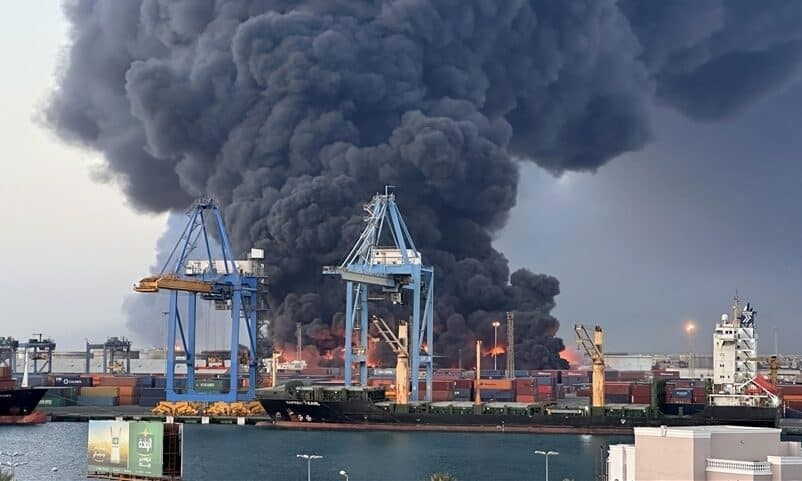South Sudan's English Daily Newspaper
"We Dare where others fear"

By Awan Achiek
The Sudanese government has ordered an immediate cessation of oil exports through Port Sudan due to an attack on a crude oil facility early last week.
On May 8, 2025, the facility was targeted in a drone strike by the paramilitary Rapid Support Forces (RSF), disrupting the flow of crude oil to international markets via Port Sudan.
The attack occurred just days after South Sudan’s Ministry of Petroleum announced that its crude oil exports had reached the marine terminal at Port Sudan for the first time in months.
This development followed disruptions caused by the ongoing war in Sudan between the army and the RSF.
Dr. Mohieddien Naiem Mohammed, Undersecretary of the Sudan Ministry of Energy and Petroleum, instructed oil companies to expedite the shutdown of oil facilities that had sustained damage from a drone attack.
“With this in mind, we have instructed both PETCO and BAPCO to provide a fast-track roadmap for shutting down the facilities,” Mohammed stated in a letter addressed to Eng. Deng Lual Wol, Undersecretary of the Ministry of Petroleum, on May 9, 2025.
“The plan will be implemented in response to these attacks, which jeopardize these facilities and hinder our ability to fulfill our commitments under the AOREM,” he added.
He warned that the risk of halting export operations is very high given the extent of the damage caused by the drone attack.
“In the early morning hours of May 8, 2025, drones targeted a major diesel depot in White Nile State, from which BAPCO withdraws diesel for operational purposes,” he said.
The attacks also targeted the vicinity of Port Sudan’s main port and international airport.
Furthermore, assaults on electricity infrastructure have impaired the marine terminals’ ability to load crude oil.
“The attacks on the fuel depots in Port Sudan and other storage facilities pose a serious threat of a critical fuel shortage, which is essential for operating the transportation systems,” he noted.
Without oil revenues, the South Sudanese government is facing severe financial difficulties, impacting the population at large.
On May 1, Juba’s Ministry of Petroleum reported that oil was being offloaded into a tanker at a marine terminal in Port Sudan, and production from key oilfields in South Sudan was running at 110,000 bpd.
The arrival and offloading of the crude were observed by a South Sudan technical team, led by Mohamed Lino Benjamin, technical advisor to the Ministry of Petroleum, along with a team from Sudan’s Ministry of Energy & Petroleum, headed by Mohammed Salah-Osman.



